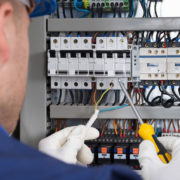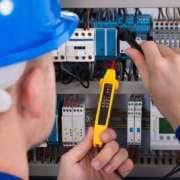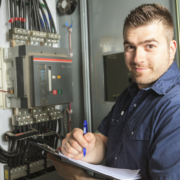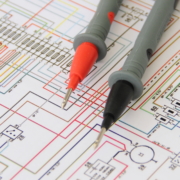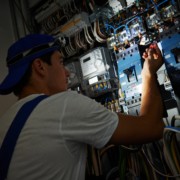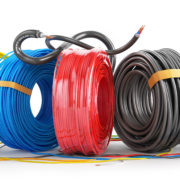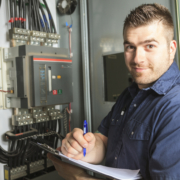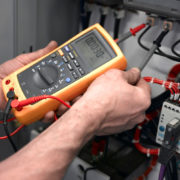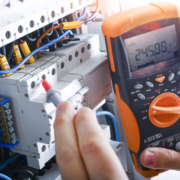What is Electrical Installation Work?
What are the types of electrical installation work?
Electrical installations are crucial elements of any modern home or business. But they are also complex and, potentially, dangerous. And this is why it’s crucial that a professional always undertakes these works. You may be wondering how a professional electrical contractor is defined and it’s an excellent question. The answer is also surprisingly simple: they are defined by their certifications. These certifications and standards underline a contractor’s credentials and it’s important that you familiarise yourself with them.
What are the Different Types of Electrical Certification?
There are two main types of electrical certification:
-
Electrical Installation Certificate (EIC):
This form of certification declares that a specific electrical installation is safe to use. This declaration starts from the date and time stated on the certificate. Typically, an EIC will be generated whenever any major electrical installations take place. Examples of where an EIC is required include fitting new lights, circuits and also specialist installations such as in bathrooms.
-
Minor Electrical Installation Works Certificate (MEIWC):
Whilst major electrical installations will always require an EIC, less intrusive and minor electrical works will only require an MEIWC. This form of certification will be issued when alterations and additions are made to existing circuits and cover non-specialist locations as opposed to bathrooms and kitchens. Much like an EIC, an MEIWC confirms that an electrical installation is safe to use and conforms to all existing regulations.
It’s crucial, as a property owner, that you obtain these certifications whenever any electrical installation work takes place on your property. Without the correct certificate you are walking a dangerous tightrope of operating with unregulated electrical installations. As well as the safety risks there is also the risk of receiving hefty fines from the authorities.
Working With the Right Contractor
If you want your electrical installations to be maintained correctly then you want to team up with a professional. And it needs to be one who understands the BS 7671 electrical installation requirements. This branch of regulations specifies that all wiring systems within a building need to be classified as safe. Important aspects of the BS 7671 include protecting wiring systems from thermal effects, electric shocks and any voltage disturbances. But how exactly do you find electrical contractors whose professionalism can put your mind at rest?
Although it is not a legal requirement, the National Inspection Council for Electrical Installation Contracting (NICEIC) acts as a seal of quality for any approved members. Backed with government approval, NICEIC regulates electrical training for contractors and ensures that certain standards are met and maintained e.g. conforming to the current edition of the BS 7671. Contractors who are registered with NICEIC regularly have spot checks on their work and are required to have a public liability insurance with a minimum value of £2 million.
Final Thoughts
Everyone wants their electrical installations to work correctly and with the minimum risk of danger. This can be a tough ask due to the many complexities and technicalities involved in electrical installations. But working with an electrical contractor who is well versed in the legal requirements of certification makes this easier. And, to guarantee levels of excellence and care, always work with a contractor who is registered with NICEIC.
For more information on electrical installation,please don’t hesitate to get in touch and speak to one of our experts.
Electrical Installation for Industry and Commerce, get in touch. Call 020 3912 6200

